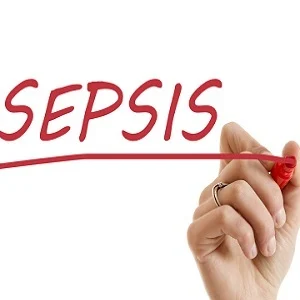A randomised controlled multicentre trial assessed for the first time the safety and pharmacokinetics of an antiprogrammed cell death-ligand 1 (anti–PD-L1) immune checkpoint inhibitor (BMS-936559; Bristol-Myers Squibb, Princeton, NJ) and its effect on immune biomarkers in participants with sepsis-associated immunosuppression.
Results show that BMS-936559 was well tolerated, with no evidence of drug-induced hypercytokinaemia or cytokine storm, and at higher doses, some indication of restored immune status over 28 days. The findings are published in the journal Critical Care Medicine.
The trial included adult patients admitted to the ICU with sepsis or septic shock who had sepsis-associated immunosuppression as defined by an absolute lymphocyte count of less than or equal to 1,100 cells/μL. Twenty-four patients were randomised to receive either an infusion of anti–PD-L1 (BMS-936559) at staged doses or placebo, and 14 completed the 90-day follow-up. The control and treatment groups were statistically different at baseline, with the treated group being older and sicker based on organ dysfunction.
Investigators (Hotchkiss et al.) reported these key findings:
- Overall mortality was 25% (10 mg dose: 2/4; 30 mg: 2/4; 100 mg: 1/4; 300 mg: 1/4; 900 mg: 0/4; placebo: 0/4).
- All participants had adverse events (75% grade 1-2): 17% had a serious adverse event (3/20 treated pooled, 1/4 placebo), with none deemed drug-related.
- Adverse events that were potentially immune-related occurred in 54% of participants; most were grade 1-2, none required corticosteroids, and none were deemed drug-related.
- No significant changes in cytokine levels were observed.
- Full receptor occupancy was achieved for 28 days after BMS-936559 (900 mg). At the two highest doses, an apparent increase in monocyte human leukocyte antigen-DR expression (> 5,000 monoclonal antibodies/cell) was observed and persisted beyond 28 days.
In a related commentary published in the same journal, Kelly A. Cawcutt, MD, MS, and Andre C. Kalil, MD, MPH, FCCM, both from the Department of Internal Medicine at University of Nebraska Medical Center (Omaha, NE), congratulate Hotchkiss et al. for their important work, saying their study moves the field forward regarding the understanding of the immunotherapy effects on sepsis.
With any immune modulating therapy, Drs. Cawcutt and Kalil note, the risks must be evaluated. Although the study authors cite the potential treatment's adverse events including pancreatitis and pneumonitis, which are clearly of particular concern among the critically ill patients, there are other described adverse events including fatigue, varying dermatologic manifestations, hypothyroidism, hepatitis, renal failure, and neurologic toxicities.
"In fact, in the study by Hotchkiss et al., compared with placebo, the anti–PD-L1 treatment arm had a numerically higher number of deaths (30% vs. 0%), higher grade 3–4 adverse events (35% vs. 0%), higher rate of hypotension (55% vs. 0%), and higher rate of respiratory disorders (25% vs. 0%); even though the small sample size of the study precludes a precise interpretation, all of these safety issues had zero rate in the placebo arm," the commentators point out.
Although the anti–PD-L1 approach is initially appealing, they say the short- and long-term clinical consequences of this immunotherapy remain unknown in patients with sepsis. Larger randomised studies are needed to assess anti–PD-L1 clinical safety and efficacy, combined with a comprehensive evaluation of index sepsis and secondary infections, readmissions, and survival outcomes, the commentators add.
Source: Critical Care Medicine
Image Credit: iStock
References:
Hotchkiss RS, Colston E, Yende S et al. (2019) Immune CheckpointInhibition in Sepsis: A Phase 1b Randomized, Placebo-Controlled,Single Ascending Dose Study of Antiprogrammed Cell Death-Ligand1 Antibody (BMS-936559). Crit Care Med; 47(5):632–642 doi: 10.1097/CCM.0000000000003685
Cawcutt KA, Kalil AC (2019) Saved From Sepsis: Can Immunotherapy Improve Acute and Postacute Outcomes? Crit Care Med; 47(5):733-735 doi: 10.1097/CCM.0000000000003702
Latest Articles
Sepsis, immunotherapy, immunosuppression
A randomised controlled multicentre trial assessed for the first time the safety and pharmacokinetics of an antiprogrammed cell death-ligand 1 (anti–PD-L1) immune checkpoint inhibitor (BMS-936559; Bristol-Myers Squibb, Princeton, NJ) and its effect on imm










